Английский по методу w_cat - [3]
37 Then it was Dick's turn to go red. He changed the subject at once.
38 "Daddy, are we going by train or by car?" he asked.
39 "By car," said Daddy. "We can pile everything into the boot. Well- what about Tuesday?"
40 "That would suit me well," said Mother. "Then we could take the children down, come back, and do our own packing at leisure, and start off for Scotland on the Friday. Yes- we'll arrange for Tuesday."
41 So Tuesday it was. The children counted the days eagerly, and Anne marked one off the calendar each night. The week seemed a very long time in going. But at last Tuesday did come. Dick and Julian, who shared a room, woke up at about the same moment, and stared out of the nearby window.
42 "It's a lovely day, hurrah!" cried Julian, leaping out of bed. "I don't know why, but it always seems very important that it should be sunny on the first day of a holiday. Let's wake Anne."
43 Anne slept in the next room. Julian ran in and shook her. "Wake up! It's Tuesday! And the sun's shining."
44 Anne woke up with a jump and stared at Julian joyfully. "It's come at last!" she said. "I thought it never would. Oh, isn't it an exciting feeling to go away for a holiday!"
45 They started soon after breakfast. Their car was a big one, so it held them all very comfortably. Mother sat in front with Daddy, and the three children sat behind, their feet on two suitcases. In the luggage-place at the back of the car were all kinds of odds and ends, and one small trunk. Mother really thought they had remembered everything.
Along the crowded London roads they went, slowly at first, and then, as they left the town behind, more quickly. Soon they were right into the open country, and the car sped along fast. The children sang songs to themselves, as they always did when they were happy.
46 "Are we picnicking soon?" asked Anne, feeling hungry all of a sudden.
47 "Yes," said Mother. "But not yet. It's only eleven o'clock. We shan't have lunch till at least half-past twelve, Anne."
48 "Oh, gracious!" said Anne. "I know I can't last out till then!"
49 So her mother handed her some chocolate, and she and the boys munched happily, watching the hills, woods and fields as the car sped by.
50 The picnic was lovely. They had it on the top of a hill, in a sloping field that looked down into a sunny valley. Anne didn't very much like a big brown cow who came up close and stared at her, but it went away when Daddy told it to. The children ate enormously, and Mother said that instead of having a tea-picnic at half-past four they would have to go to a tea-house somewhere, because they had eaten all the tea sandwiches as well as the lunch ones!
51 "What time shall we be at Aunt Fanny's?" asked Julian, finishing up the very last sandwich and wishing there were more.
52 "About six o'clock with luck," said Daddy. "Now who wants to stretch their legs a bit? We've another long spell in the car, you know."
53 The car seemed to eat up the miles as it purred along. Tea-time came, and then the three children began to feel excited all over again.
54 "We must watch out for the sea," said Dick. "I can smell it somewhere near!"
55 He was right. The car suddenly topped a hill- and there, was the shining blue sea, calm and smooth in the evening sun. The three children gave a yell.
56 "There it is!"
57 "Isn't it marvellous!"
58 "Oh, I want to bathe this very minute!"
59 "We shan't be more than twenty minutes now, before we're at Kirrin Bay," said Daddy. "We've made good time. You'll see the bay soon- it's quite a big one- with a funny sort of island at the entrance of the bay."
60 The children looked out for it as they drove along the coast. Then Julian gave a shout.
61 "There it is- that must be Kirrin Bay. Look, Dick- isn't it lovely and blue?"
62 "And look at the rocky little island guarding the entrance of the bay," said Dick. "I'd like to visit that."
63 "Well, I've no doubt you will," said Mother. "Now, let's look out for Aunt Fanny's house. It's called Kirrin Cottage."
64 They soon came to it. It stood on the low cliff overlooking the bay, and was a very old house indeed. It wasn't really a cottage, but quite a big house, built of old white stone. Roses climbed over the front of it, and the garden was gay with flowers.
65 "Here's Kirrin Cottage," said Daddy, and he stopped the car in front of it. "It's supposed to be about three hundred years old! Now- where's Quentin? Hallo, there's Fanny!"
66 Chapter Two. THE STRANGE COUSIN
67The children's aunt had been watching for the car. She came running out of the old wooden door as soon as she saw it draw up outside. The children liked the look of her at once.
68 "Welcome to Kirrin!" she cried. "Hallo, all of you! It's lovely to see you. And what big children!"
69 There were kisses all round, and then the children went into the house. They liked it. It felt old and rather mysterious somehow, and the furniture was old and very beautiful.
70 "Where's Georgina?" asked Anne, looking round for her unknown cousin.
71 "Oh, the naughty girl! I told her to wait in the garden for you," said her aunt. "Now she's gone off somewhere. I must tell you, children, you may find George a bit difficult at first- she's always been one on her own, you know. And at first may not like you being here. But you mustn't take any notice of that- she'll be all right in a short time. I was very glad for George's sake that you were able to come. She badly needs other children to play with."

Книга предназначена студенту, писавшему программы только в качестве курсовых, "сдавшему" Delphi и несмотря на это, желающему стать программистом. Это, не сборник готовых рецептов, автор хочет поставить читателя в условия максимально приближенные к рабочим. Мы вместе напишем программу, пройдя через ошибки, и сомнения к окончательной победе...

Книга предназначена студенту, писавшему программы только в качестве курсовых, "сдавшему" Delphi и несмотря на это, желающему стать программистом. Это, не сборник готовых рецептов, автор хочет поставить читателя в условия максимально приближенные к рабочим. Мы вместе напишем программу, пройдя через ошибки, и сомнения к окончательной победе...
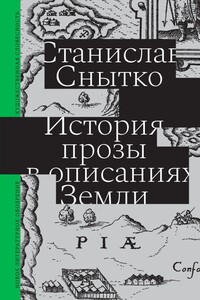
«Надо уезжать – но куда? Надо оставаться – но где найти место?» Мировые катаклизмы последних лет сформировали у многих из нас чувство реальной и трансцендентальной бездомности и заставили переосмыслить наше отношение к пространству и географии. Книга Станислава Снытко «История прозы в описаниях Земли» – художественное исследование новых временных и пространственных условий, хроника изоляции и одновременно попытка приоткрыть дверь в замкнутое сознание. Пристанищем одиночки, утратившего чувство дома, здесь становятся литература и история: он странствует через кроличьи норы в самой их ткани и примеряет на себя самый разный опыт.
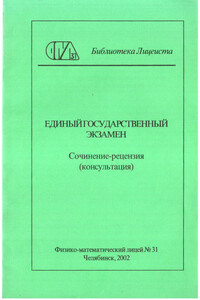
В сборнике представлены теоретические сведения о семантической структуре слова, о структуре текста, о типах речи, подобраны упражнения для анализа текста, также образцы рецензий на фрагменты рассказов из КИМов ЕГЭ.
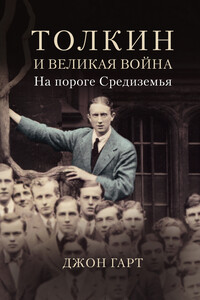
Книга Дж. Гарта «Толкин и Великая война» вдохновлена давней любовью автора к произведениям Дж. Р. Р. Толкина в сочетании с интересом к Первой мировой войне. Показывая становление Толкина как писателя и мифотворца, Гарт воспроизводит события исторической битвы на Сомме: кровопролитные сражения и жестокую повседневность войны, жертвой которой стало поколение Толкина и его ближайшие друзья – вдохновенные талантливые интеллектуалы, мечтавшие изменить мир. Автор использовал материалы из неизданных личных архивов, а также послужной список Толкина и другие уникальные документы военного времени.
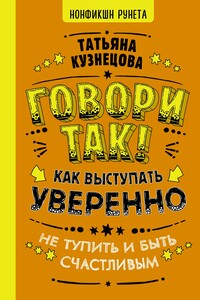
Наш язык, слова, которые мы произносим, – отражение нашей культуры, образа мыслей. Мы – это то, что мы говорим. Неумение говорить мешает нам жить и быть счастливыми. Мы проигрываем в спорах, не можем заявить о себе, теряемся перед вопросами, упускаем возможности изменить свою судьбу. Речь – наша визитная карточка, а мы часто скромно прячем ее в кармане, стесняясь показать. В книге «Говори так!» собраны истории жизни автора, истории учеников, которые через ораторское мастерство пришли к успеху. Вы узнаете: – как говорить уверенно, ярко и убедительно; – как направлять энергию слова на созидание, а не на разрушение; – как говорить, чтобы быть счастливым. Прорабатывая страницу за страницей, вы заметите, что уже начали менять свою речь.
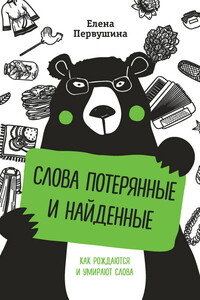
В новой книге известного писателя Елены Первушиной на конкретных примерах показано, как развивался наш язык на протяжении XVIII, XIX и XX веков и какие изменения происходят в нем прямо сейчас. Являются ли эти изменения критическими? Приведут ли они к гибели русского языка? Автор попытается ответить на эти вопросы или по крайней мере дать читателям материал для размышлений, чтобы каждый смог найти собственный ответ.

Доклад С.Логинова был прочитан на заседании Семинара 13 декабря 1999 года, посвященном теме «Институт редакторов в современном литературном процессе»).От автора: статья написана на основе фактов, все приведённые имена и фамилии подлинные. Случайных оскорблений здесь нет.